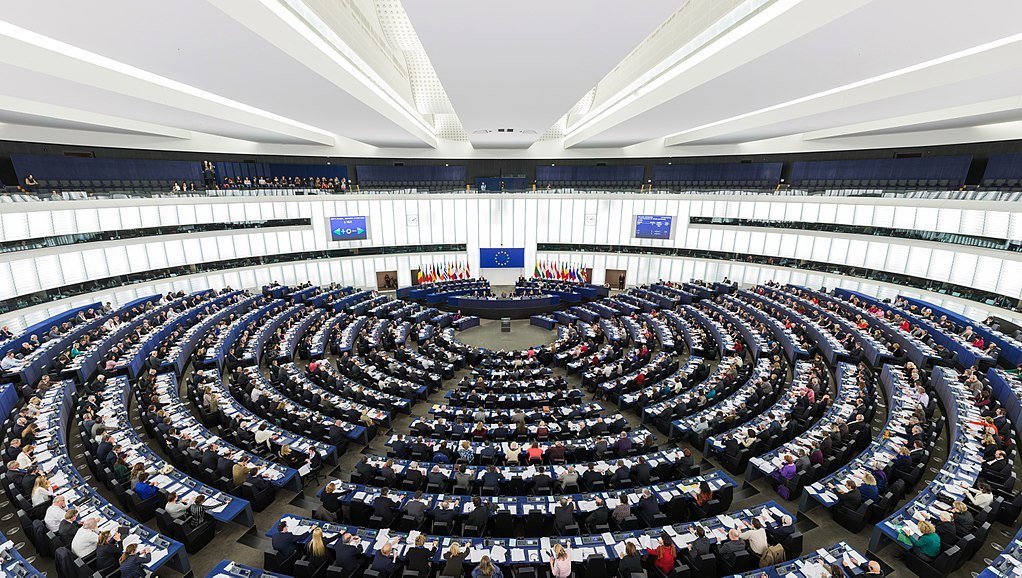A few days ago, Disy president Annita Demetriou added her voice to the issue of EU unanimity, following a vote by the European Parliament to implement a number of reforms that would largely abolish member states’ veto power.
Taking decisions unanimously, with a right to veto, “preserves a balance among member states, while acting to protect smaller members like Cyprus”, said Demetriou, adding that removing that right threatens to create “a two-speed Europe”.
The whole thing sounds like a false alarm, of course. The EU has strongly denied that any discussion about waiving unanimity is taking place beyond this particular bill, pointing out that any such change would require a change to the bloc’s governing treaties – which the parliament has no power to effect.
In fact, changing the treaties is a huge task, requiring referendums in some states and, certainly, unanimous agreement among the 27 members. It would take years, with no guarantee of success, even if plans were afoot to remove the veto – which apparently they’re not.
So much for the short term. Long-term, however, it’s increasingly clear that the EU has become too diverse, and the problems it faces too intractable, to function on the basis of unanimous agreement.
The migration issue threatens to tear the whole bloc apart, with a few countries in southern Europe disproportionately affected and others refusing to share the burden.
Consensus is fraying at the edges. Just in the past few days, Hungarian prime minister Viktor Orban has threatened to block all EU aid for Ukraine unless EU leaders review their entire strategy of support for the war, while Slovakian prime minister Robert Fico announced that his country plans to reject the WHO’s new pandemic treaty – a treaty that the EU surely supports, given its reverence for the WHO and the fact that Germany, in particular, is among its biggest donors.
What could be done? It’s true that unanimity is enshrined in the EU treaties – but it’s also been amended and eroded over the years, with only a limited number of ‘sensitive’ areas still requiring it.
One can easily imagine a scenario where, without quite removing veto power, the EU chips away at it until it becomes irrelevant – and that’s not even taking into account the extensive political pressure (withholding funds and so on) which could be applied behind the scenes. If the past few years have taught us anything, it’s that every supposedly non-negotiable right can be curtailed ‘for the greater good’.
Then again, none of this explains why Annita Demetriou made her comment this week – and it certainly wasn’t because she’s worried about Ukraine, or the WHO treaty.
For Cyprus, EU veto power means only one thing, namely the power it affords over Turkey. It’s the power to veto Turkish accession talks, as we’ve done in the past – though it’s unclear if those talks were even viable, or whether Cyprus just provided cover for other states which also had objections.
Fortunately, the accession of new member states is perhaps the most sensitive of sensitive areas. Given our particular interest in the matter, it seems unlikely that we’ll ever lose the right to veto – at least in the limited sense of being able to rebuff new applicants.
The problem isn’t the recent vote by the EU Parliament, which may indeed end up going nowhere. The problem is the overall direction of travel – which Cyprus remains unequipped to deal with, especially when our only interest lies in using veto power as some kind of bargaining chip in the Cyprus problem.
The vast majority of our law is now EU law. Even when it doesn’t come directly from Brussels, it has to abide by the so-called ‘acquis communautaire’. EU law has supremacy even over the Constitution, which was amended in 2006 to reflect that fact. The Hatzisofokleous case of 2021 also established that lower courts in Cyprus must defy established precedent – even from the Supreme Court – if it clashes with EU law. Vital issues, from migration to the environment, are shaped entirely by EU values and policies, which would not have been our own policies if we had a free hand.
This is not to decry them, necessarily. There are many areas (the environment being the obvious one) where EU membership has been a blessing. Nonetheless, it’s clear that – especially for a country that joined mainly for geopolitical reasons, hoping for protection and added leverage in the Cyprus problem – we’ve become dependent on the EU, with no prospect of that ever changing.
As long as that doesn’t disturb the bloated public sector (in fact, EU jobs only add to it), no-one seems to mind very much. More importantly, as long as we still wield some power – even theoretically – to cast a veto against policies we find abhorrent, it’s possible to have some illusions of sovereignty.
In effect, EU unanimity has become our only weapon. The more it gets limited and chipped away – ultimately, perhaps, to be removed altogether – the closer we get to the status of a small province in a European empire, which was probably inevitable to begin with.







Click here to change your cookie preferences